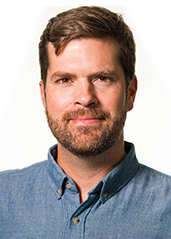Helping students see themselves as scientists
May 6, 2019
This post is republished from Into Practice, a biweekly communication of Harvard’s Office of the Vice Provost for Advances in Learning
 When Dr. Kevin Eggan, Professor of Stem Cell and Regenerative Biology, did research as an undergraduate, it “transformed for me what science was and what it could be.” His Precision Genetics and Gene Therapy year-long course offers sophomores a similar opportunity. In the fall, students are introduced to a “jamboree of recent medical discoveries in Amyotrophic lateral sclerosis (ALS).” Working in small groups, they explore and then choose a gene to focus on. In the spring, they continue in small groups to experiment on mice, learn tools for analyzing the data they generate, and present to their peers, instructors, and external experts along the way.
When Dr. Kevin Eggan, Professor of Stem Cell and Regenerative Biology, did research as an undergraduate, it “transformed for me what science was and what it could be.” His Precision Genetics and Gene Therapy year-long course offers sophomores a similar opportunity. In the fall, students are introduced to a “jamboree of recent medical discoveries in Amyotrophic lateral sclerosis (ALS).” Working in small groups, they explore and then choose a gene to focus on. In the spring, they continue in small groups to experiment on mice, learn tools for analyzing the data they generate, and present to their peers, instructors, and external experts along the way.
The benefits: By integrating technical advances with his lab’s expertise in genetic variations in ALS patients, Eggan’s course is “a skunkworks that gives students exposure to an exciting new area.” Instead of “learning what someone else thinks they should know, they’re pursuing their own research question” and he’s found that students are far more motivated to engage with “data that they’ve made.” Moreover, the course gives “students the tools to figure stuff out and incorporate data-driven decision-making.”
The challenges: The course is a “big undertaking for a modest number of students” (enrollment cap of 16). Instructors teach 6 hours a week—three in lecture, three in lab—and provide a lot of personalized attention. “The goal is to change the direction of students’ thinking, creating impact over the course of the year,” which involves intensive work from Eggan, a preceptor, and a teaching fellow throughout that time.
Takeaways and best practices
- Support experimentation through community. Eggan has strict attendance requirements, with steep penalties for missing class. But the “bar is lower if you screw up.” His message is: “show up, rely on each other, and it’s OK to make mistakes.” The course is “about trying things and experimenting—more about intellectual exploration than pure knowledge attainment.”
- Incentivize questions. In “chalk talk” sessions, students take turns presenting on research papers. Those who are not presenting must ask a question to receive full participation points. “People don’t want to look silly in front of their peers, so their questions are usually very good,” says Eggan. Requiring question-asking also encourages everyone to read the assigned article carefully.
- Engage outside experts. Eggan brings in local experts, including ALS patients, for class discussions on topics such as CRISPR therapies and ALS. At the year’s end, students share their research results at a poster session attended by ALS researchers from area hospitals. These interactions help students see real contexts and impacts of their work.
Bottom line: As Eggan describes, “we’re working at the interface between the established and the unknown. It’d probably be a lot less messy if we didn’t force students into trying to do experiments on the stuff they’ve made, but it wouldn’t be a dry run for later research if we didn’t.”

